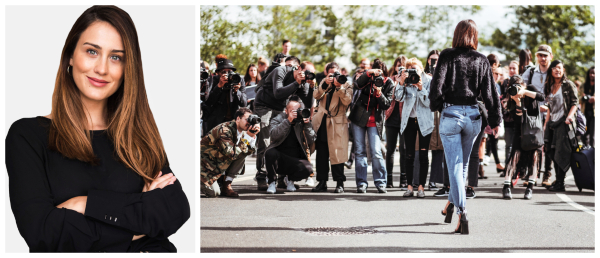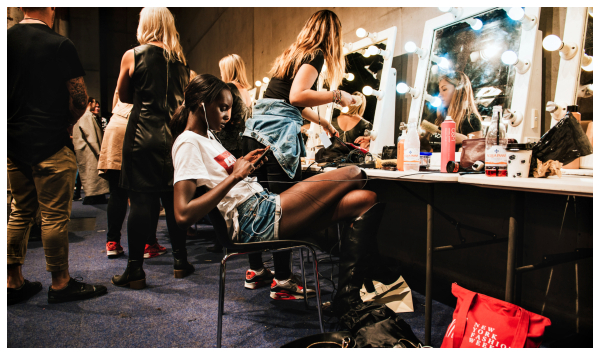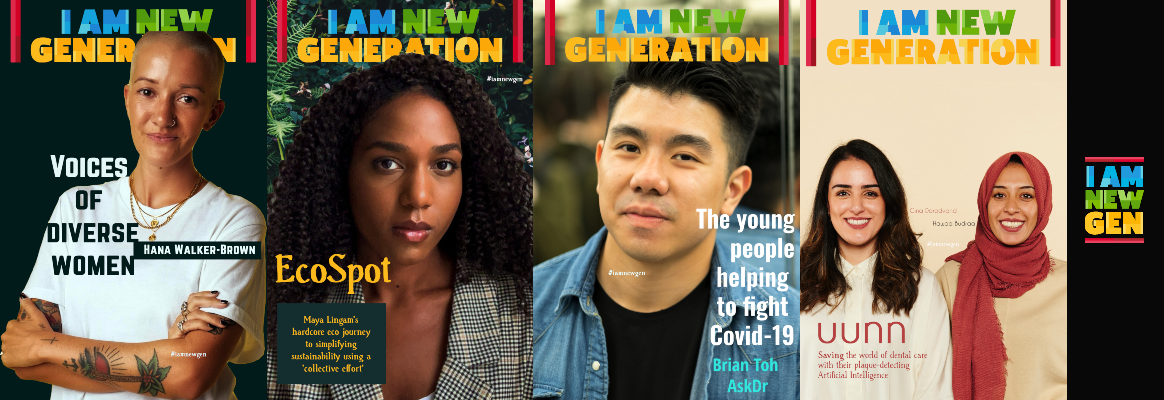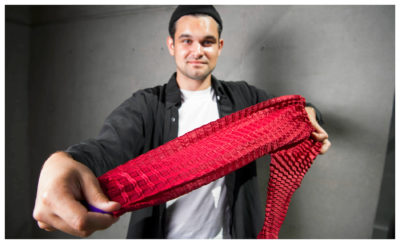My generation has been at the center of a dramatic shift in how consumers approach fashion. The latter part of our teenage years, as well as the entirety of adult life so far, have been impacted by two key factors – the rise of social media, and the rise of cheap fast fashion.
Isabella West launched her clothing rental platform – Hirestreet – last year May to give young people a much socially-acceptable and sustainable route to fashion. With 100,000 users already jumping at the shot to spending less on buying clothes, the 25-year old fashion influencer discusses the ever-rising need for a more wallet-friendly alternative to shopping for new outfits.
“Never before has there been so much pressure on decisions around the outfits we choose to wear, nor has there ever been so many affordable outfit options available.
As a 25-year-old living in London, I was working hard and living for the weekends.
Planning outfits for various birthdays, brunches, weddings and dinners added colour to a working week that was often 70+ hours long.
I genuinely used to be proud of my refusal to outfit repeat.
The new lease of confidence that came with a new outfit, paired with the satisfaction of a ‘value’ purchase had me well and truly addicted to fast fashion.
Looking around me at my friends, family, and colleagues, I felt that I was not the only one in this position – the booming sales of fast fashion companies confirmed this.

In the middle of 2017, while working for the Selfridges Group Strategy Team on a consultancy project, I began thinking more and more about the potential of a millennial-focused fashion rental service.
There are several drivers indicate that now is the perfect time for a high-street, fashion-focused rental platform.
We have a generation of consumers who document their lives on social media, who are known for their love of experiences over ownership and who are increasingly environmentally conscientious.
Often referred to as Generation Rent – they already embrace the circular economy in transport, housing, and music.
So why not fashion?
Thanks to brilliant documentaries such as Stacey Dooley’s investigation of ‘Fashion’s Dirty Secrets’ and stark headlines driven by the Environmental Audit Committee’s scrutinisation of the fashion industry, it seems that many people (myself included) are becoming increasingly aware of just how unsustainable fast fashion can be.
However, education and awareness on their own aren’t necessarily enough to change consumer behaviour – not unless a viable, affordable alternative to fast fashion comes to market.
This gap in the market is exactly what Hirestreet was founded to plug.
As a founder, I wanted to build a solution to the trap that I was falling into. I loved the feeling of having a new outfit, and yet I felt increasingly guilty with every purchase.
I couldn’t afford to switch to sustainable brands, which often have more limited ranges and higher price points, and I found that the existing rental services in the UK were often exclusively designer focused, which was also out of my budget.

Hirestreet lets customers rent occasion wear outfits for a fraction of the retail price – typically paying between £10 and £30 for 10 day periods.
Garments that would traditionally have been worn once or twice are being worn more than 10 times.
By extending the lifetime of a garment, we estimate that its environmental impact is reduced by up to 70%.
The core of Hirestreet’s vision is the concept of memories over materials – we encourage our customers to save their money to spend on experiences as opposed to outfits that they will only wear once.
Since our launch, in May 2018, we have had 100,000 users on our website. But we are just scratching the surface of the potential market and there is so much more to do.
Global fast fashion consumption is projected to rise 63% by 2030 – meaning that in 11 years time we could be seeing 102 million tonnes of fast fashion produced in a space of 12 months if things stay as they are.
What’s more, if consumer purchasing trends stay as they are, then we could expect that 3 out of 5 of these items will end in a landfill within a year.
By introducing a shared approach to fashion, we can dramatically extend the lives of fast fashion garments.
Much of our ‘New In’ stock that has just arrived for Spring 2019 will be worn more than 10 times over the course of the summer.
That’s 10 girls feeling confident in the same dress, as opposed to 10 dresses purchased on the high street being worn once.”
Images Copyright – Unsplash / Flaunter.com
Story Intro by Adele Duah Amponsah – Editorial Assistant, @iamnewgenmag
More Stories…
Fashion Meets Finance With Urenna Okonkwo’s ‘Cashmere App’
Business Competitions Supporting Young Founders
Ryan Yasin’s Fashion Tech Startup ‘Petit Pli’ Is Solving The Issue With Fast Fashion











